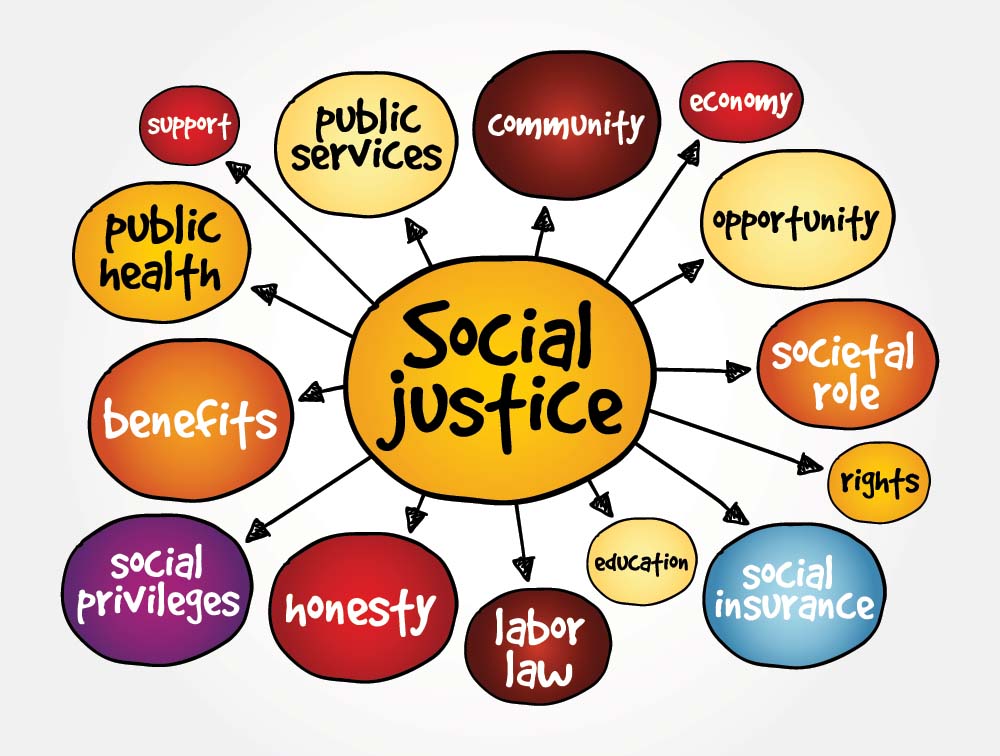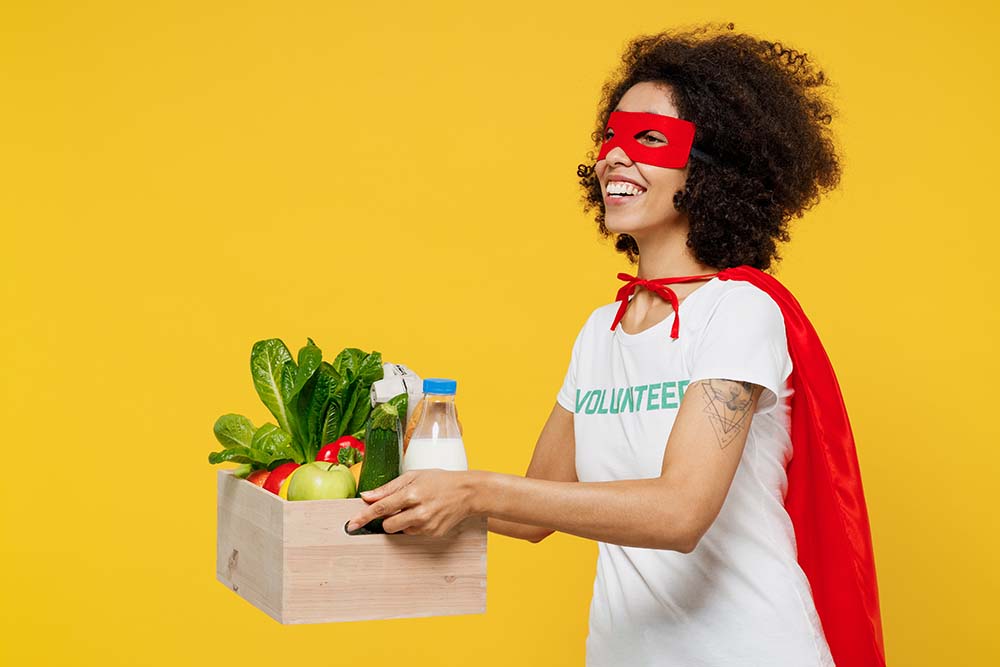There are moments in history when social justice issues take centre stage all over the world. Living in the 2020s, we all know that now is that time. From climate change, loss of forests & biodiversity, and increasing levels of pollution & waste, to racial, gender, sexuality and caste issues, there is a lot going on in the world that needs our immediate attention. The COVID-19 pandemic, which hit at the very turn of this decade, has further highlighted the need for healthcare and financial systems that support entire populations, and not just the privileged few who already know how to access them.
Social justice, therefore, is a key issue every individual needs to focus on. The good bit is, with the digital revolution transforming the world and bringing it closer every day, everybody can now participate actively towards making society a more equitable space for all, whether it’s women, marginalised genders and communities, or the world’s rural population who are still disadvantaged in many respects. This is the primary reason why even the United Nations’ World Day of Social Justice, which is celebrated every year on February 20, is now inspiring all its members, including India, to make the entirety of their populations a part of the ever-expanding digital economy. There are projects, programmes and organisations, spearheaded by social activists, experts and leaders of communities, which are calling for action every day, hoping you and everyone else will join the global fight for social justice in multiple areas.
Now, if you are wondering how to join this global movement, the first thing you need to know is that yes, you can make a difference. Every individual matters in this fight for social justice. How to go about making that difference? Here’s how you can start.

Steps You Can Take Personally
Standing up for social justice is not something you can just start out with one fine day. First, you need to understand yourself, your place in the world, and analyse your surroundings to know if they are just. Only then can you pinpoint a social justice issue that you can best contribute to. Not all individuals are affected by the same issues. For example, for a community settled near an ocean or forest, the climate change impact could be more urgent than anything else. For someone coming from a marginalised class, caste, race or gender, preservation of traditions and accessing all sorts of rights is more urgent for survival and progress. Keeping this in mind, here are a few steps towards social justice you can take at a personal level.
1. Reflect On Your Privilege
Most people get some things from the moment they are born—a name, their parents’ economic status, a community and a nation. Each of these layers of identity, while contributing to who a person is, also indicate the privileges we might enjoy. It’s therefore important for context that you indulge in some self-reflection, break down the parts of your identities and recognise what your privilege is. It is only when you acknowledge and address your own privilege that you can recognise other people’s lack of it with regards to you.
2. Get Educated
Every social justice issue has a history and a context. Without knowing what that is, you cannot jump right into it. First, you need to understand what it’s all about. Then, you need to reflect on whether it’s something you have the natural resources or willpower to contribute to. A major part of social justice movements is based on doing plenty of research, especially if you’re hoping to support a marginalised or discriminated against the population. This means identifying credible sources of information about the cause and understanding the point of view of the people demanding justice. This self-education never stops, so commit to it.
3. Talk To People & Listen
Social justice causes are about people, usually communities that have faced decades if not centuries of discrimination and oppression. Take the Scheduled Castes and Scheduled Tribes of India, for example. For either of these communities to get the social justice they deserve, every individual needs to listen to their cumulative experiences. The movement for justice also needs to be driven by their needs and demands, those little or big changes that can get them closer to dignity and equality. To understand all this, you need to pass the mic and listen to people from these communities.
4. Donate To Causes
Every social justice movement needs funds to carry on its works, and that’s one of the easiest ways of supporting these causes. You don’t have to donate a large amount. Instead, giving regularly to a cause you believe in, even in small amounts, can go a long way. But before you write a cheque, do ensure the details of the cause are verified. Unfortunately, social justice causes can also be hotbeds for digital frauds, so make sure the organisation you are donating to is well-known and actually does utilise the funds properly.
5. Volunteer
Even if you can’t donate money to a cause, you can volunteer your time for it. Most social justice causes require manpower to help marginalised communities get access to everything from food, water, healthcare, shelter, legal rights, livelihoods, etc. From looking for jobs for such community members to educating them and their children, you can do a lot to improve their conditions.

Steps You Should Take Online
One of the things you might have heard about joining any social justice movement is that by harnessing the power of social media, even mountains can be moved. It is true to a large extent, especially if you know how to take the fight for social justice online, and conduct it in the best way possible. Here are a few ways you can do that.
1. Share Resources Of Valid Information
Given that fake news is a real thing now—and is widely used to spread disinformation and invalidate movements—knowing the right sources of information is very important. If you know of reliable sources of information, especially those attested to by credible organisations like the United Nations and its many branches, or whose data is provided by peer-reviewed journals, then don’t just rely on them to educate yourself. Share them ahead so that others can benefit from them too.
2. Show Active Support
If you do have a cause you believe in, make sure you show your support for it online. This will help generate more awareness about those social justice issues among people in your own circles. If you share regular and reliable updates about the cause you support, this can also provide a reliable source of information for others hoping to join the cause. At the same time, sharing data and raising awareness online can also amplify the voices of the communities you are fighting for.

3. Pass The Mic
Social media is a brilliant place for all voices to be heard, and one of the ways you can contribute is by passing the mic to those who don’t have any access to these platforms. If you are volunteering for any social justice movement, ask the members of the affected community to give you interviews or share their life experiences that can be shared online. However, make sure you get their express consent before posting any content online, as it can be an invasion of privacy if done without consent.
4. Speak Up!
Social media is also a place where active conversations and discussions can take place. This is one of the easiest mediums through which you can amplify a cause and the voices of those who deserve to be heard. For this to be done effectively, you need to make your own arguments for these communities be heard as an ally. Express why the conditions that lie behind this cause deserve attention, put forward your ideas on how this change can be most effectively brought out, and show your support to others arguing for the same cause. The last part will also help you build a community of support for a social justice issue online, which can be very effective in spreading the word.
5. Report Concerns
It’s not wrong to say that social media, and especially speaking up on it, isn’t always without its problems. While the space is open to all, many take up cyberspace to bully, troll and defame others. It’s important for every social justice issue that social media remain safe for free speech as well as for spreading the word about important causes. So, if you see a cybercrime being committed or trolls being too abusive against users, marginalised communities or any gender, report the same to the authorities immediately.